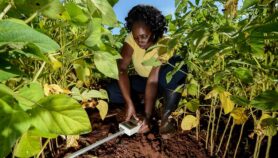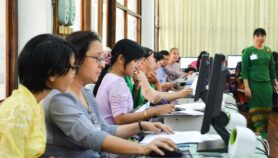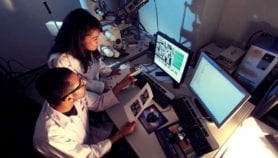Send to a friend
The details you provide on this page will not be used to send unsolicited email, and will not be sold to a 3rd party. See privacy policy.
Climate scientists should learn from the open-source software movement to create more effective responses to climate change — but first, they must understand how it works, argue Brendan Barrett and Sulayman K. Sowe.
Opening up climate science to a more creative process of producing knowledge can encourage individuals and communities to generate, adapt and share data and software without licensing restrictions, they say.
For example, Barrett and Sowe suggest that researchers or organisations rework how climate change research is evaluated and distributed, using transparent peer-review processes or adopting an open licence model when publishing results.
They point to the example of the European Organization for Nuclear Research (CERN), which uses free and open software and makes data available online — showing that openness in science is not an alien concept.
But it is neither a widely accepted concept. Climate scientists have yet to sign up to Science Commons, a project launched to make research, data and resources easier to find online.
The authors argue that to make their research freely available, climate scientists must learn to give up control. Open-source software projects are governed by consensus and assessed through extensive and transparent peer review. Almost anyone with appropriate skills can access and develop parts of the project.
But an institution like the Intergovernmental Panel on Climate Change (IPCC), whose actions are subject to intense scrutiny, may find it difficult to adopt an innovative and radically open approach to evaluating science, they say.
Barrett and Sowe suggest that the IPCC could ‘test the waters’ by establishing a new, experimental working group to tackle a specific topic with a truly open approach, from which the climate change community can draw lessons to be implemented in the IPCC’s sixth assessment report.













